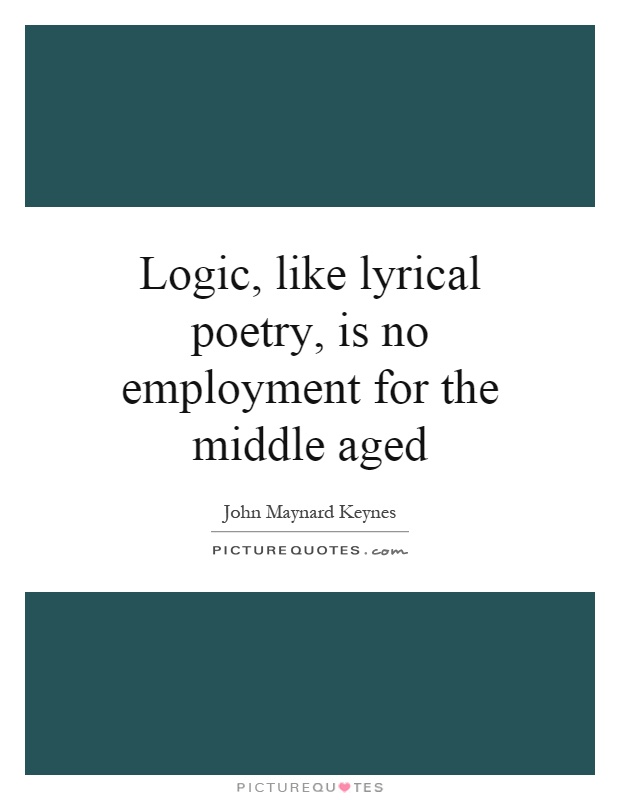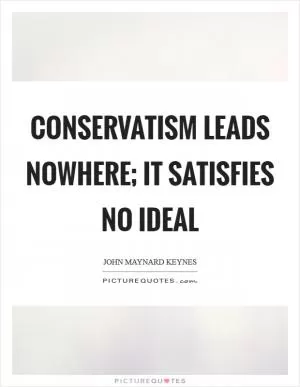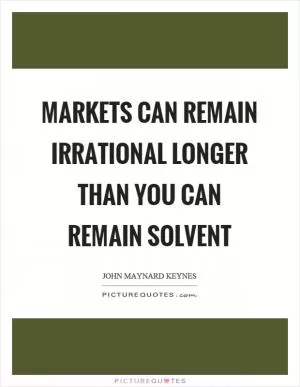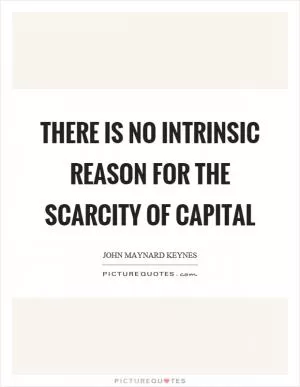Logic, like lyrical poetry, is no employment for the middle aged

Logic, like lyrical poetry, is no employment for the middle aged
John Maynard Keynes was a renowned economist whose theories and ideas have had a lasting impact on the field of economics. He was known for his innovative thinking and his ability to challenge traditional economic theories. Keynes was a firm believer in the power of government intervention in the economy to stimulate growth and reduce unemployment. His ideas laid the foundation for what is now known as Keynesian economics.Keynes was also a prolific writer and thinker, and his works are still studied and debated by economists today. One of his most famous quotes is, “Logic, like lyrical poetry, is no employment for the middle aged.” This quote reflects Keynes’ belief in the importance of creativity and imagination in the field of economics. He believed that rigid adherence to logic and traditional economic theories could stifle innovation and prevent new ideas from emerging.
Keynes’ own work was a testament to his belief in the power of creativity and imagination. He was not afraid to challenge conventional wisdom and propose bold new ideas. His most famous work, “The General Theory of Employment, Interest and Money,” revolutionized the field of economics and laid the groundwork for modern macroeconomic theory.
Keynes’ quote about logic and lyrical poetry can be interpreted in a number of ways. On one level, it can be seen as a critique of the traditional, logical approach to economics that dominated the field at the time. Keynes believed that economics was not a purely logical science, but rather a complex and dynamic system that required creativity and imagination to fully understand.
On another level, the quote can be seen as a reflection of Keynes’ own approach to economics. He was not content to simply accept the prevailing economic theories of his time, but instead sought to challenge them and develop new ideas. Keynes’ willingness to think outside the box and embrace creativity set him apart from his contemporaries and allowed him to make significant contributions to the field of economics.












 Friendship Quotes
Friendship Quotes Love Quotes
Love Quotes Life Quotes
Life Quotes Funny Quotes
Funny Quotes Motivational Quotes
Motivational Quotes Inspirational Quotes
Inspirational Quotes